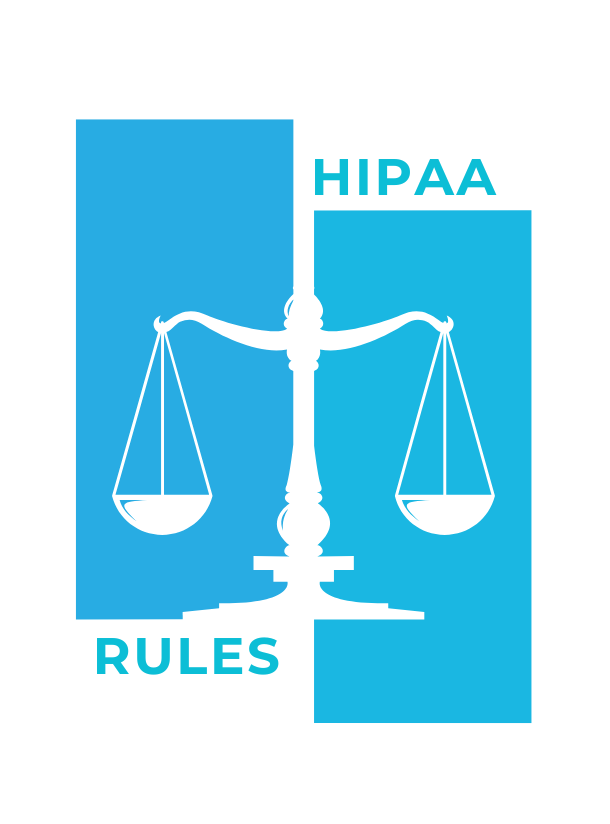Get to Know HIPAA Rules and Regulations
The key aspect of HIPAA that makes it a highly effective and comprehensive law for guiding the healthcare industry is that it provides an up-to-date framework of rules and regulations for managing healthcare information in the current threat landscape.





All of HIPAA’s rules, categorized under various legislative sections or titles, address very specific areas of healthcare information management, patient privacy, digital information infrastructure, and law enforcement. These rules are also updated on a regular basis to stay current with changing technologies, healthcare innovations, and cyber threats. On this page, you’ll discover all the important HIPAA Rules and Regulations, learn who they apply to, and how you and your healthcare clinic team can achieve ongoing HIPAA compliance.
The 7 HIPAA Rules and How You Can Comply With Them
When HIPAA was first enacted in 1996, the primary goal was to ensure patient health information security and privacy while enabling insurance and health benefits portability. Hence, one of the first HIPAA rules to come into effect was the Privacy Rule, which not only identified which information fell under the category of Protected Health Information (PHI), but also outlined the terms for collecting, storing, managing, sharing, and disposing of health data.
Over the last three decades, the U.S Department of Health and Human Services (HHS) has added more rules under HIPAA, 4 of which form the core structure of the HIPAA law. Here’s an overview of all 7 HIPAA Rules that are being enforced today.
HIPAA Privacy Rule
The Privacy Rule concerns the broad protection of personal healthcare information, defining patients’ rights over their data, and policies for safe and ethical data use by healthcare professionals and organizations while also defining which data is considered PHI.
HIPAA Security Rule
The purpose of the Security Rule is to protect electronic PHI. It defines the administrative, technical, and physical safeguards that healthcare providers must use to ensure compliance with confidentiality requirements and prevent breaches.
HIPAA Breach Notification Rule
HIPAA Identifier Standards Rule
This rule mandates identifier standards, such as National Provider Identifier (NPI), Health Plan Identifier (HPID), and Employer Identification Number (EIN), to ensure consistency, support auditability, and interoperability.
HIPAA Transactions Rule
The Transactions and Code Sets Rule offers a standardized format for electronic healthcare transactions, like claim submissions and payments, in healthcare settings.
HIPAA Enforcement Rule
HIPAA Omnibus Rule

Who Do The HIPAA Rules Apply To?
According to the HHS, HIPAA applies to two categories of individuals and organizations.
- Covered Entities: These are the individuals and organizations that are directly involved in delivering healthcare services. Healthcare providers, health insurance plan firms, and healthcare clearinghouses all fall under this category. The covered entities need to comply with all of HIPAA rules and regulations.
- Business Associates: These are individuals and organizations that provide third-party services to covered entities for the delivery of healthcare. This category includes vendors, consultants, and IT service providers.
How Common HIPAA Rule Violations Happen
Despite clear guidelines from the HHS, many organizations and healthcare clinics fail to properly implement HIPAA compliance measures, resulting in mistakes that cost clinics millions of dollars. Here are four of the most common reasons clinics suffer HIPAA rule violations that can lead to compliance problems.
Many healthcare providers and clinics still rely on outdated and unsecure communication channels like fax or traditional email platforms to share health information with patients. This can result in a serious HIPAA violation.
To ensure continued HIPAA compliance, clinics must regularly conduct risk assessments to identify any gaps in security. Failure to do so leaves them vulnerable to data breaches and violation penalties.
A BAA outlines how Business Associates must handle and protect PHI. Covered entities must have a signed BAA with any vendor or third party that handles PHI on their behalf. If BAAs are outdated or missing key provisions, both parties may be held liable for any data breaches.

Frequently Asked Questions About HIPAA Rules and Regulations
Yes, especially the business associates who handle PHI directly on behalf of covered entities. Not only do they need to comply with all HIPAA rules and regulations, but they also need to sign a BAA and conduct HIPAA compliance training programs for their staff.
Yes, all third-party vendors who work with covered entities to deliver healthcare and related services, and who have signed a BAA, must conduct regular risk assessments within their organization. This helps them identify any vulnerabilities and implement necessary safeguards to stay compliant with HIPAA rules.
Are Your Patient Communications in Compliance with HIPAA?
Speak to our HIPAA Compliance experts who can help ensure your healthcare communications are compliant.